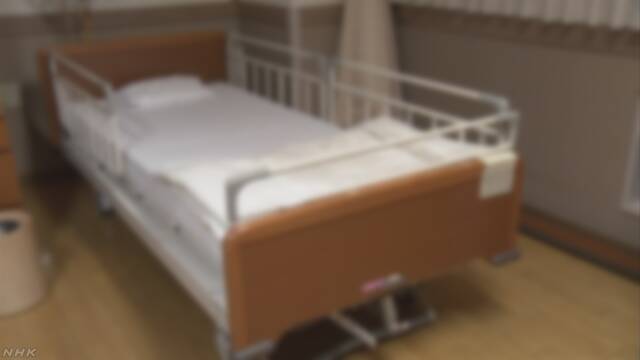New coronavirus hospital bed tightness in 9 prefectures NHK survey April 14 17:43
When NHK asked prefectures nationwide about the medical system for the new coronavirus, the number of hospitalized patients exceeded 80% of the prepared beds in 9 prefectures, and the situation was tense. I found out that. This includes five prefectures other than the area where the emergency is declared, and experts point out that we should urgently improve the system, such as increasing the number of medical institutions that can accept it.
NHK interviewed prefectural governments on the 13th about hospital beds and inpatients corresponding to the new coronavirus through broadcasting stations nationwide.
According to it, the number of hospital beds that new coronavirus patients are secured to be hospitalized is more than 9600 beds nationwide, and the current number of hospitalized patients is at least about 5,000.
The number of hospitalized patients exceeds 80% of the number of beds that have been announced as being secured, in nine prefectures, and Tokyo, Osaka, Hyogo, and Fukuoka prefectures have been declared as emergency situations. In addition to the regions where it is located, Yamanashi and Shiga prefectures, Kyoto prefecture, Kochi prefecture, and Okinawa prefecture account for more than 80%, and it has become clear that securing beds is an issue in each region.
In addition, in order to give priority to the treatment of severely ill patients, eight prefectures have already taken care of mildly ill patients to receive medical treatment at accommodations and homes.
In addition, the number of people who are receiving medical treatment or waiting at accommodation facilities or at home exceeded 16 people in 16 prefectures in total, including those who could not secure beds.
Of these, in Saitama prefecture, Chiba prefecture, and Kanagawa prefecture, where declarations of emergencies have been issued, more than 100 people are receiving medical treatment and waiting at their homes.
Furthermore, when we heard that there were concerns about the medical system, we found that there were insufficient supplies such as medical masks to prevent infections, a shortage of medical staff to move people with mild illness to accommodation facilities, and that patients at large hospitals were not They list things like concentration and nosocomial infections.
Dr. Kenshi Kona, who is treating patients at the National Center for Global Health and Medicine, said, "Hospitals that have not accepted patients until now will not be able to go around if they are not treated. If we don't secure beds, we will not be able to catch up, "he said, and it is necessary to urgently improve the system to save people who are in serious condition, such as increasing the number of beds that can be accommodated in each area.

